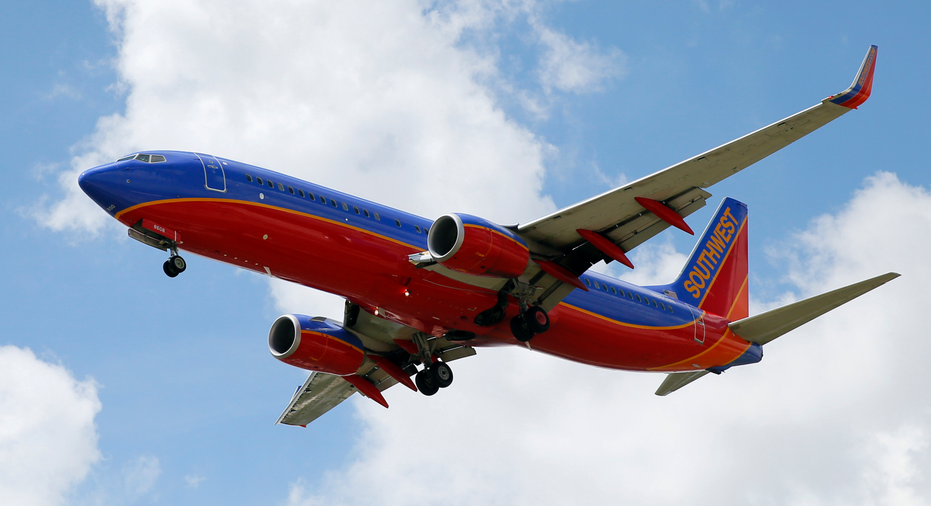Southwest gets boost from tax law; beats Street 4Q forecasts

DALLAS – Southwest Airlines said Thursday that fourth-quarter profit jumped to $1.89 billion as the recent tax law reduced the company's deferred tax liability and should boost 2018 earnings too.
The nation's fourth-biggest airline also said that travel bookings so far in 2018 appear solid, and it gave a cautiously upbeat forecast of revenue in the first quarter.
The report indicated, however, that Southwest continues to be dogged by rising costs for labor and fuel. Overall, costs are rising nearly twice as fast as revenue.
Strong demand for travel is boosting Southwest and other carriers, although investors worry that the airlines are undercutting their ability to raise fares by adding too many flights and seats.
Southwest, for example, posted its best-ever fourth quarter for seats sold — 85 percent on the average flight — but the average one-way fare still fell nearly 3 percent, to $140.60.
Dallas-based Southwest said earnings soared from $522 million a year earlier. Much of that was due to a $1.15 billion reduction in Southwest's liability for deferred taxes because of the new tax law. The law cut the corporate income-tax rate from 35 percent to 21 percent.
Chairman and CEO Gary Kelly said the lower rate will save Southwest hundreds of millions of dollars, "which will significantly boost our earnings in 2018."
Excluding one-time items, the company said it earned 77 cents per share, a penny better than the average forecast, according to Zacks Investment Research.
Revenue rose 3.9 percent to $5.27 billion, also topping analysts' expectations.
However, costs climbed 6.4 percent, led by a 12.6 percent rise in labor expenses and a 7.7 percent increase for fuel.
Southwest forecast that revenue for every seat flown one mile — a figure that airline investors watch closely — will rise by between 1 percent and 2 percent in the first quarter, compared with the same period in 2017.
Southwest set a record for full-year profit, earning $3.49 billion in 2017, up from $2.24 billion in 2016.
Kelly said Southwest was using the profit to buy new planes, upgrade its technology and reward shareholders. In 2017, the company spent $1.9 billion on dividends and repurchasing its stock, which makes the remaining shares more valuable. It paid $543 million in profit-sharing for employees, who also got $1,000 bonuses this month, which the company tied to the lower tax rate.
Southwest plans to begin flying to Hawaii — first it needs federal approval to operate the over-ocean flights — and said Thursday that it would also begin serving Paine Field in Everett, Washington, near Seattle, joining Alaska Airlines and United Airlines in offering commercial flights there.
In morning trading, Southwest shares fell $1.53, or 2.5 percent, to $60.68. The shares started the day up 25 percent in the last 12 months but down 5 percent since the beginning of the year. The Standard & Poor's 500 index has climbed 6 percent in 2018.
___
David Koenig can be reached at http://twitter.com/airlinewriter



















